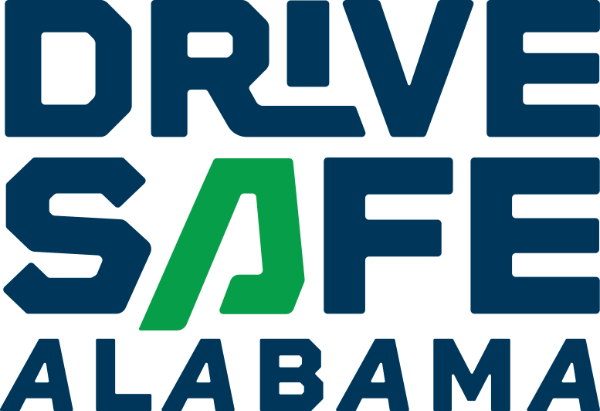Oct. 31, 2017 started much like any ordinary day for Charlie Posey, a third generation employee for the Alabama Department of Transportation (ALDOT)–but things quickly took a turn for the worse.
Posey, a surveyor, at the time, was sent to do his job, a job he had done for 11 years without major incident. He had some close calls, but nothing like he experienced that October day when he and two of his coworkers were struck by an impaired driver.
As Posey recalls, he was on this job in Montgomery, Alabama that day manning the truck. His boss had just given him instructions, and he was on his way to tell his coworkers. That’s when they all were all hit by the vehicle.
Posey was thrown into the air, smashed against a windshield, and went sliding across the ground. He suffered from a seizure, had sand and gravel wedged into his sinus cavities, and his ear came partially unattached.
Human versus car–that’s a losing battle every time. I was just fortunate.
Charlie Posey
As all this happened, his father, a fellow surveyor, came up to the scene and saw his son seizing, worried he was witnessing his death.
Posey was fortunate to survive. His coworker Leo Fournier, however, lost his life that day.
“It’s a dangerous job, and people don’t realize it because they are not out in those elements everyday,” Posey said. “Human versus car–that’s a losing battle every time. I was just fortunate.”
At the time of this accident, Posey’s wife was five months pregnant, and he’s now a father of two. He currently works in a different role at ALDOT, as the Constant Operator Reference Station (CORS) Manager – a role he took to do less work from the side of the road.

Posey’s story is far from the only one like this.
You may have seen billboards in Alabama with the slogan “Brake for Jake.” That’s for Jacob Smith, who was a 35 year-old ALDOT employee struck and killed by a driver while removing traffic control barriers in 2016. He left his wife a widow and his twin children without a father.
These incidents aren’t just in the past. While pushes for safety happen on a regular basis–and while incident numbers have declined in recent years, road construction work is a dangerous job.
These are human beings who are out there putting their bodies on the line in order to keep roads in good condition.
Allison Green, Communications Manager and Drive Safe Alabama coordinator
In 2023, there were 1,777 work zone crashes in Alabama resulting in 25 fatalities and 498 injuries. Most people killed in work zones were motorists, passengers and pedestrians. However, when workers are present, workers are the most vulnerable to injury and death. Most work zone crashes are rear-end collisions, resulting from speeding or distracted driving.
ALDOT takes safety seriously
Tracy Fletcher, Assistant State Maintenance Administrator, spends her days ensuring safety standards are taught, understood, and upheld at ALDOT.
Fletcher said all employees have online training available for every circumstance they might find themselves in.
For example, there are protocols specific to each element of road construction. Lane closures will require training that tells workers what devices they need to have, how to set up the lane closure, how to properly use flags, how to communicate with one another in a work zone, and how to conclude the closure when the work is over.
Each step is covered–for every type of job there is.
Fletcher said the training doesn’t stop there. To ensure everyone is comfortable and understands requirements, safety meetings are encouraged prior to each job. They offer a chance for open discussion about any concerns and make plans together to operate the most safely and efficiently as a team.
Fletcher also said all Personal Protective Equipment (PPE) is provided by ALDOT to employees. There are guidelines that dictate exactly what standards the gear is, but PPE includes things like safety vests, hardhats, helmets, safety boots, and fall protection gear.
Allison Green, Communications Manager and Drive Safe Alabama Coordinator, said the organization has worked in the past couple years to really push for a culture of safety internally.
“We were seeing that people had the technical things down, but they didn’t necessarily feel empowered to speak up if they didn’t have the right safety equipment needed,” Green said. “So we started a culture of safety program to make sure they know safety in the workzone is a priority. So they are fully equipped and can speak up.”
ALDOT needs your help to make Alabama safer.
While ALDOT employees know the technical details on job safety, there is only so much in their control.
That’s where you come in.
“We view the public as partners with us because they travel with us on our roads and highways,” Fletcher said. “They let us know when there are things that need addressing on the roads, and we need them to be responsible with their actions while we are out there working on those things.”
One of the biggest things Alabama drivers can do to keep road workers, each other, and themselves safe is to follow the speed limits in work zones. While this may be aggravating when you are running late, just following this simple action could save a life.
There are times in a work zone where lanes shift positions, where workers are flagging the start and stop of traffic, where there is no room for error. And these errors are easier to make if you are driving above the speed limit for work zones.
Another big thing is to not drive distracted. Posey said he and fellow surveyors witness hundreds of drivers on their cell phones while working.
Posey even admits that he didn’t take the time himself to drive slower in work zones prior to his own accident.
“Now, I emphasize it. People need to slow down–carelessness is what ruins other people’s lives,” Posey said.
While delays in road work, especially jobs that seem to go on forever, are hard to deal with for drivers, at the end of the day, everyone just wants to make it home safely–ALDOT workers and all of us. The chances are much greater when we can work together.
“We like people to think about the fact that people working out on the roads are fathers, mothers, sisters, brothers…and they need to get home safe from their jobs everyday,” Green said. “These are human beings who are out there putting their bodies on the line in order to keep roads in good condition.”
For more information on National Work Zone Awareness Week and training visit NWZAW.org




